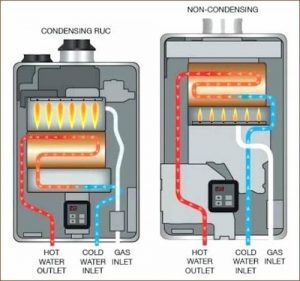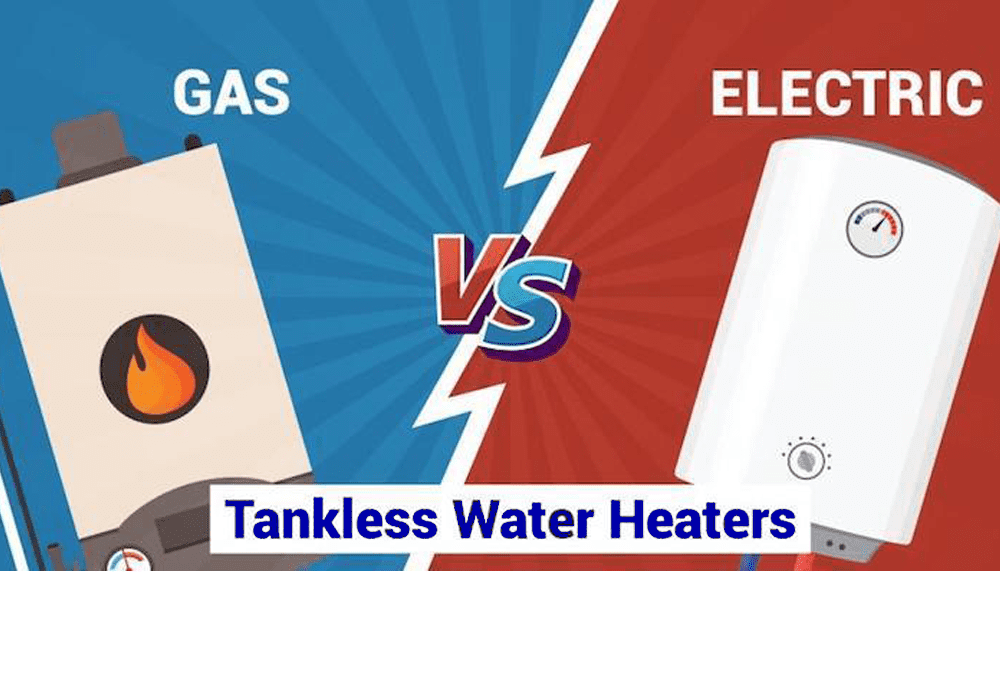We know that when you are trying to decide what Tankless Water Heater is best for you it can be daunting. There are so many options; different brands, different models, different venting, different powering methods. It’s a lot to research. We have come up with the basics for you to understand the differences!
Condensing vs Non- Condensing Tankless Water Heaters:
Condensing Tankless Water Heater: A Condensing Tankless Water Heater extracts heat from the exhaust gases and produces gases around 100 degrees. These cooled gases produce condensation inside the water heater. This causes the efficiency of the water heater to go up because you can use cheaper ventilation materials as the gas cools. By capturing the exhaust, you use the residual heat to heat the water in the unit which achieves higher efficiency. There are times that the heater may not always condensate; surrounding air temperature and air humidity can affect condensation. Since the exhaust gases cooled inside the unit, condensation is now inside the water heater so the heat exchanger is made of materials that can withstand the corrosive nature of the gases. They are typically made of stainless steel. Rinnai Tankless Water Heaters line of condensing Tankless units are Energy Star Certified and carry a 90%-96% efficiency rating.
Non-Condensing Tankless Water Heater: Similar to the condensing version, Non-Condensing Tankless Water Heaters will push exhaust gases through a vent to the outside. These gases cool outside of the water heater. Because the gases being pushed through the vent are upwards of 300 degrees, the vent is made of materials to withstand the temperatures and not corrode.

Natural / Propane Gas vs Electric Tankless Water Heaters:

Gas Tankless Water Heaters are the most common type. They do have some electrical components to operate the PC Board and control panel but it just needs a normal wall outlet to operate. With a Gas Tankless Water Heater, you will save money on energy costs as well as saving on water wastage if you have a recirculation pump. Ongoing operating costs are obviously an important consideration. As a general rule, gas and electric Tankless Water Heaters will cost approximately the same to operate, especially when you factor in the recommended annual maintenance that gas appliances require. This will depend greatly on the differential between natural gas or propane and electricity costs in your area. There are many regions where gas costs are extremely high due to the lack of supply in the region. In these areas, an electric unit can be significantly cheaper to operate. Remember, electric Tankless Water Heaters are more energy efficient; so much of the cost difference between the fuels will be negated.





